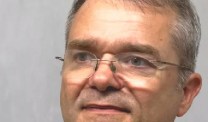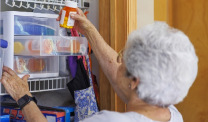Support for a Friend Diagnosed With Mesothelioma
Cancer & CaregivingWritten by Travis Rodgers | Edited By Walter Pacheco
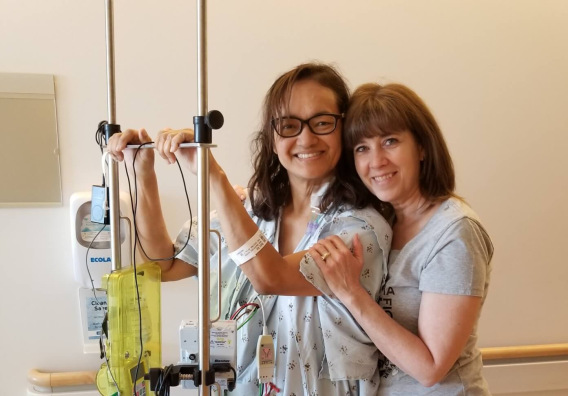
Being diagnosed with a rare and deadly illness is certainly a life-altering event. Having someone you can rely on during this difficult time can mean the world to a person who’s forced to navigate life with mesothelioma.
Kim Madril, a mesothelioma survivor, had Jeanette Mednicoff by her side through the entire ordeal. The two have been friends for years and would travel many miles to see each other on a regular basis.
During one visit Madril confided in Mednicoff that she had a pain in her side that wouldn’t go away and was in fact getting worse. After seeing a couple of doctors who had conflicting diagnoses, they traveled to Boston together to get an expert opinion from thoracic surgeon Dr. Abraham Lebenthal.
There were several possible causes of Madril’s pain, but a malignant mesothelioma diagnosis seemed unlikely to Mednicoff.
“Initially when she told me that mesothelioma was on the list, I thought, there’s no way. It cannot be. She’s young, she’s strong, she’s healthy, she’s a woman,” Mednicoff recalled. “So from my reference point, [it affected] only older men that had worked somewhere where there was asbestos exposure.”
Most people who are diagnosed with mesothelioma are much older than Madril and made a living in a blue-collar career. People who work in certain occupations such as construction, manufacturing or members of the military are more likely to develop the disease. It turns out that Madril did have mesothelioma caused by asbestos exposure from inside one of her high school classrooms.
Madril had a successful career as a nurse. She’s also a wife and mom of two who began running marathons at the age of 50. She was forced to end her career as a nurse due to mesothelioma.
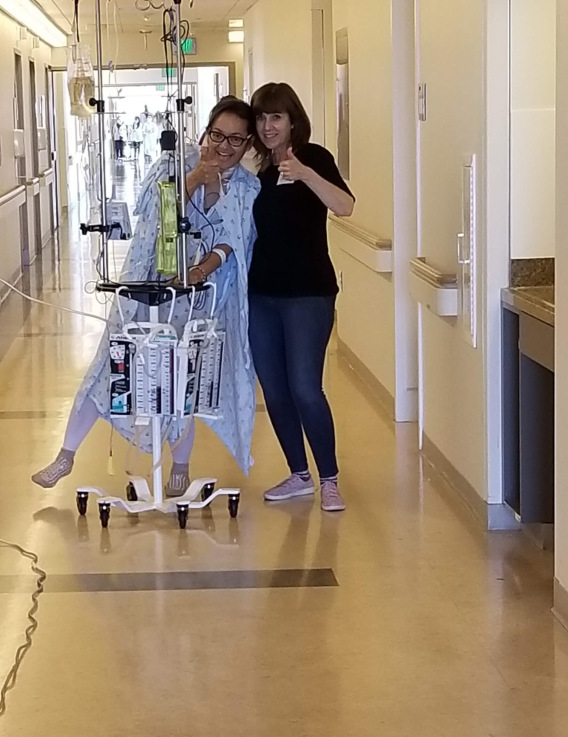
Ask the Right Questions
Mednicoff made it a point to ask as many detailed questions as possible right after her friend’s diagnosis. Without hesitation, she started helping Madril understand what she was up against.
“Dr. Lebenthal was wonderful. He spent the whole day, and he talked to us. He answered all the questions,” Mednicoff recalled. “I am the girl with all the questions, seriously. And I just asked him a whole slew of things. He actually got out his chalkboard and drew things. He explained what he proposed she would do as far as a course of action. He recommended this surgery. He explained it. He drew a diagram. I mean, he spent a lot of time with us. We were very grateful to him.”
While discussing her friend’s situation with Lebenthal, Mednicoff was encouraged by the many options she had.
“When the specialist talked to us about her diagnosis, he was actually very positive. He was supportive. He said, ‘There’s things we can do,’” Mednicoff said. “So at that point, I felt like there was hope, there were options. There was a path going forward. There were things that could be done medically to help prolong her life.”
A Friend’s Supporting Role
After learning as much as she could about her friend’s diagnosis, Mednicoff was determined to come up with the very best plan of action for her. She wanted to take on any stressful tasks that she could so Madril could focus on other things.
“So I really tried to help Kim figure out a game plan. There were so many things that she had to do. I mean, of course, she had to deal with insurance. She was working, she had two children at home, a husband. There was just a lot on her plate,” Mednicoff said. “And so one of the things I said to her was, ‘What can I do for you? What can I take off this list? What calls can I make?’”
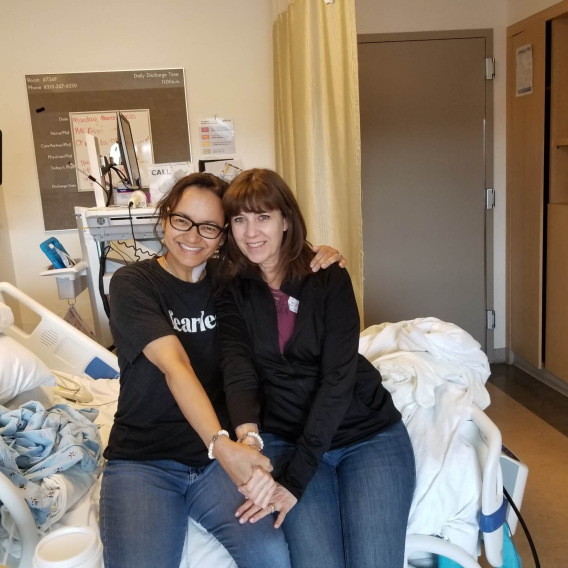
Mednicoff flew to Madril’s home to lend a hand with getting everything organized. She helped her with paperwork and created a filing system. She also made lists and prioritized what needed to be done.
She said others who want to support a friend dealing with a mesothelioma diagnosis should offer any help they can for that person, even if it seems like a minor task.
“When trying to support someone with mesothelioma, offer your personal strengths. Hey, I’m really good at doing these things. How about if I do that for you? Can I offer my support in this manner? Just to ask,” she said. “I think some people may be surprised that something they think is so simple like making phone calls might be a huge help, a huge relief, a huge stress reliever for the actual patient.”
Mednicoff wanted to make sure her friend knew she could always lean on her.
“I think the most important thing is to let the person that has received such a diagnosis know that you’re there for them,” she explained. “Through the whole medical journey and everything that she’s been through I found that I actually had a catchphrase: What can I do for you?”
Resources Through The Mesothelioma Center
Along with her personal assistance, Mednicoff said another important resource she used to help following Madril’s diagnosis was The Mesothelioma Center and the center’s Patient Advocates.
“Missy at Asbestos.com was extremely helpful. When I made that initial call to her, she was warm, she was friendly, she was kind, she was just very caring. She was very personable,” Mednicoff said. “She really wanted to hear about Kim, her situation, where she was at in her medical journey, how she was doing. And then she asked me a lot of questions about myself, how I was coping, how I was able to support Kim, our friendship, our connection.”
Through Asbestos.com, those dealing with a mesothelioma diagnosis can receive packets of information, have questions answered, find out about support groups and receive a list of specialists and physicians.
“You really get the sense that Missy really is in your corner. She is really there for you,” Mednicoff said. “In addition to that, she was really available. I mean, she made it clear to Kim and I both, you need anything, anytime you just want to talk, you call me. She was really there.”
Advice for Others
For those with friend or loved one dealing with mesothelioma, Mednicoff has a few key pieces of advice that can make a big difference.
“Time can be of the essence. After your or your loved one’s diagnosis, deal with your emotions. Deal with however you’re feeling, whatever your big feelings are. But don’t waste a lot of time.“
“Seek out help. Seek out a specialist. Seek out someone that really will take you seriously. Someone that knows this disease. Someone that will lay it out for you and give you the best treatment plan there is.”
“Getting another opinion really prolonged [Kim’s] life. It really saved her life by taking the next steps and going for that second, third opinion and seeing experts in the field.”
Treatments Are Available
Mednicoff wants to remind people facing the same situation that there are options and help waiting for those in need. Despite the seriousness of mesothelioma, many times there is a course of action that can be taken.
“In some cases, there is treatment available. There are surgeries now that are game-changing, life-prolonging and lifesaving that a patient can see if they’re qualified to have,” she said. “There are radiation treatments. There’s chemotherapy. Obviously, this all depends on what type of mesothelioma they have, the location, and everyone is different in their stage as a diagnosis.
Mednicoff said her friend is a testament to the fact that seeking treatment options from a specialist can offer mesothelioma patients hope.
“There’s still life to be lived,” she emphasized. “Mesothelioma is not the death sentence that a lot of people initially believe it is.”

